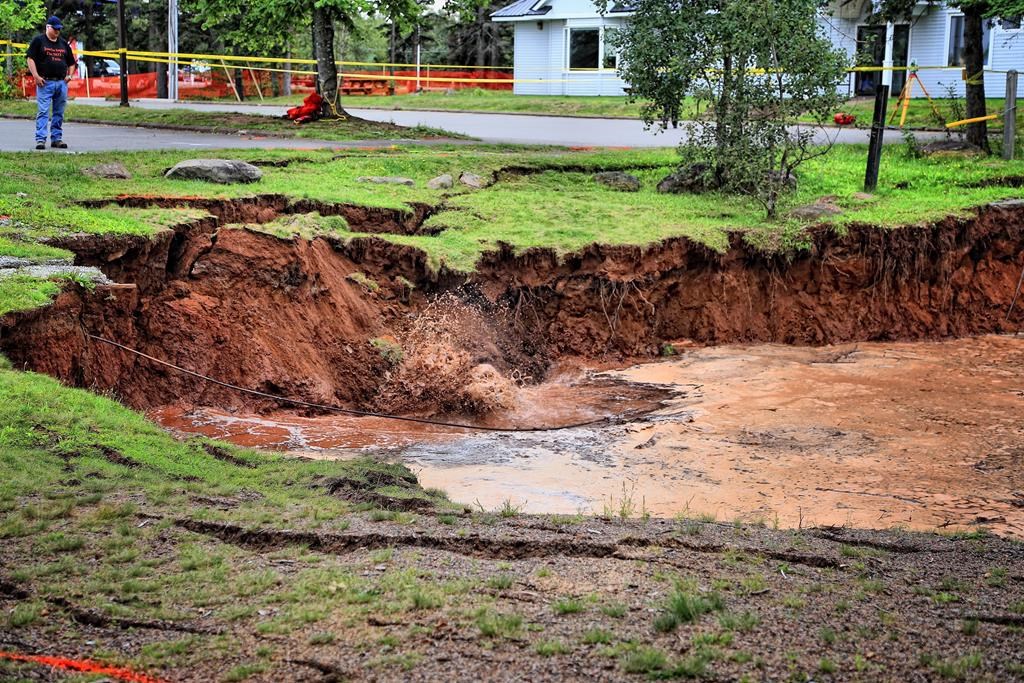The Nova Scotia government has begun probing a section of the Trans-Canada Highway that is adjacent to several sinkholes in the northern part of the province.

Transportation Department spokeswoman Marla MacInnis says a geotechnical study is being carried out at Exit 6 of Highway 104 near the town of Oxford, N.S.
She says in an emailed statement the drilling will provide “a clear understanding of the conditions at this site” and how best to respond.
READ MORE: N.S. road crews checking highways near Oxford for sinkhole problems
The department says site work began this week and includes the drilling of several boreholes to a depth of between 30 and 38 metres. The depth will vary depending on subsurface conditions encountered.

Get breaking National news
The work follows concerns raised in August by Oxford’s chief administrative officer, Rachel Jones, and other local officials who pointed out that laser imaging, known as lidar, had shown sinkholes in a band crossing the highway.
Jones also said that an aerial image from the 1930s, before the highway was built, indicated it crosses an area where there had been a water-filled hole – a potential problem for the major transportation link connecting Nova Scotia and New Brunswick.
Oxford has been dealing with a large sinkhole that opened in the town last year and has since filled with water. It has forced the permanent closure of the Oxford Lions Club building and a surrounding park.
An engineering report warned of the risk of additional sinkhole activity, including near Highway 321, which runs through Oxford.
WATCH: Some areas of Oxford face more sinkhole concerns

A geologist with the provincial Department of Energy and Mines has said laser imaging has indicated a well-defined line of sinkholes in and around Oxford, extending for about five kilometres and reaching a width of about 500 metres in some areas.
The current investigation is being done by Logan Drilling and is overseen by Harbourside Engineering.
This report by The Canadian Press was first published Oct. 8, 2019.
- Queen’s University students stranded in Doha after Iran attack shuts down airspace
- Iran begins search for new leader; U.S. military says 3 service members killed
- Khamenei’s death met with ‘jubilation’ among Iranian-Canadians: Liberal MP
- Attack on Iran triggers global flight disruptions, impacts Canadian travellers







Comments
Want to discuss? Please read our Commenting Policy first.